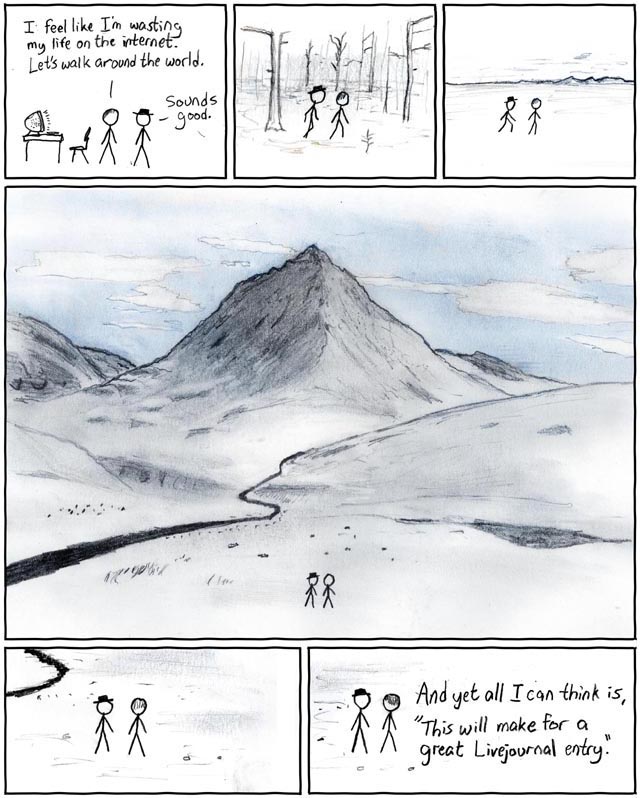I read another article about why not to have public debates on socially contended scientific issues. This time, it was about Global Warming: Climate Science on Trial.
It brings up an issue that gets little press. There is a qualitative difference between science (as a type of investigation) and other philosophical filters such as law, religion, and so forth. Science was developed because we cannot trust our senses, our feelings, or our memories outside of now-known ranges of perception. That is, too big, too small, too fast, too slow, or too complex.Even within normal ranges, much of what we think we perceive is colored by habit and expectations.
The democratic ideal is that everyone is equal. But methods of understanding are not equal. Without the methods of science, we still would be living on a flat, stationary, unchanging world under a moving canopy of the heavens just beyond our reach, where the smallest thing is a mustard seed, and the widest realm is a few weeks walk. Where the universe was created during the era of early Sumerian urbanization, and will end some lesser time in the future. The Bible says so. The best minds in the world agreed, until Galileo and his ilk
The problem of public debate is that it takes some training to understand why science is the best filter for making judgments on big issues. It doesn't care about the personalities, preferences, and prejudices of scientists. The method weeds out false answers, however many people believe them or how authoritatively they are stated. If a scientist turns out to be wrong, because he (as a human) has the limitations listed above, those who disagree with his position herald his failure as proof that the method is flawed. Those who agreed with him claim conspiracy among those who proved him wrong. Pick a position; everyone is equal.
It is easy to make a convincing argument that persuades the majority who don't actually have the grounding to really understand the issue. It is harder to make people understand that what so obviously feels right is actually wrong, and to understand the proof and its validity. It feels right to say that Man is unique and superior and is the purpose of the universe. But examination by the scientific method that shows that there really are few things that distinguish our kind in any way, and that we are a tiny part of the ecosystem, much less the universe. We have risen (thanks to technology and industrialism) to a level of might wherein we have the ability to make the planet uninhabitable for ourselves. But we don't have the ability to deflect or escape the next extinction event, whether a nearby quasar, nova, asteroid collision, or massive ice age of yet-undetermined cause.
The current hot issue is whether we need to act fast to reverse the current unprecedented rise in global temperatures. It is easier to ignore the issue. Much like the proverbial frog in a pot who entered comfortable water, and doesn't notice it slowly warming till he dies of the heat. We're in the pot, and the temperature is rising. But denialists (supported by the fossil fuel trade) use tried and true methods of persuasion to keep the public from acting on it.
All the climate scientists agree: It is happening, it is partially (if not entirely) our doing, and we can do something about it. By now, the warming cannot be completely stopped or reversed. But slowing it down may be the difference between the collapse of our civilization, and a unifying cause to move world civilization forward.
But most people still don't see that science, as a practice, is actually a distinct and more reliable way of figuring out what is going on. Public debate primarily publicizes the anti-science position. How can this be fixed?
I suggest that, in this age of ubiquitous information, that primary and secondary education lean less on packing facts into kids, and spend more time teaching how to deal with information: How we know what we know, how to judge fact from fallacy, information from disinformation, and knowledge from counterknowledge.

